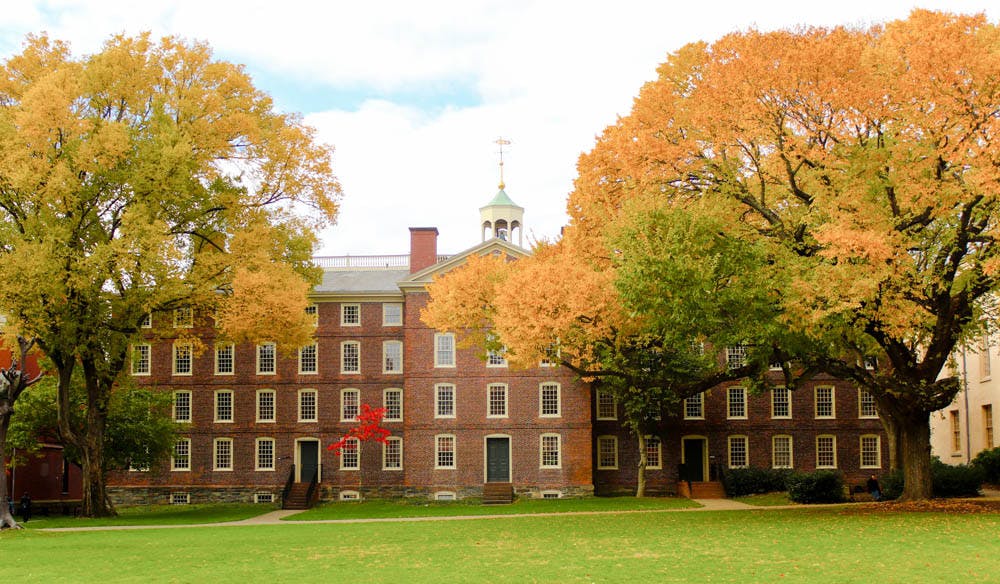The National Association for College Admission Counseling recently loosened restrictions on how colleges can recruit prospective students in response to mounting pressure from the U.S. Department of Justice.
NACAC will no longer prohibit colleges from recruiting students already committed to another institution, recruiting transfer students using an applicant pool from a previous year or offering special incentives to students who apply early decision, such as enhanced financial aid packages or better housing.
NACAC’s Code of Ethics and Professional Practices aims to “protect the interests of both students and institutions by upholding a college admission process free from coercion and discrimination,” according to the code. NACAC membership is voluntary, but its members, including the University, must comply with the code.
Under the previous policies, the DOJ accused NACAC of violating antitrust laws by stifling competition for students among colleges. “To help bring to a close” the DOJ’s antitrust investigation into NACAC, the 2019 NACAC Assembly delegates voted in late September to strip the three recruitment provisions and stop enforcing the entire code for up to one year or until the DOJ’s legal review is resolved.
Dean of Admission Logan Powell believes that NACAC’s changes to its code removed well-intentioned guidelines that were created explicitly to protect applicants from overly-aggressive recruiting, he said. “NACAC was sincere in its belief that these were protections for individual students, that students should be free from potentially predatory behavior.”
The Admission Office is currently in the process of reviewing its early decision policies to ensure that they are in compliance with the recent code changes. But Powell said he does not expect that the Admission Office will otherwise alter any of its current recruitment practices in the coming admission season, emphasizing that students’ choices of which college to attend should be respected. “NACAC policy or not, we believe it’s the right thing to do to support that student’s choice, and once they have made it, we respect it and wish them nothing but the very best,” he said.
Though the Admission Office will not communicate with peer institutions regarding their responses to the changes, Powell hopes that other schools will similarly abide by the moral standards promoted by NACAC’s previous provisions.
NACAC President Jayne Fonash similarly said that although NACAC can no longer enforce its previous provisions, she hopes that institutions will continue to value the interests of student applicants. “I believe that the majority of our members will always place the best interests of students at the forefront of decisions that they make in the admission process,” she said.
Independent college counselor Sara Harberson said that students may be negatively impacted by the changes to NACAC’s code. “These students are still teenagers, and they don’t understand the tactics and strategies that colleges will use to get them to apply and enroll,” she said.
Harberson noted that removing these provisions gives colleges that were already engaging in unethical recruitment practices more immunity to do so. “This really opens the door to more unethical or questionable behavior on the part of certain colleges and universities that care deeply about the number of applications they receive rather than the students behind those applications,” she said.
Professor of Political Science Ross Cheit, who teaches POLS 1050: “Ethics and Public Policy,” said that there is value in setting a deadline after which no institution may pursue a student who has already committed to another institution. By allowing colleges and universities to recruit after students’ May 1 enrollment deadline, the end of the college application process for students will be more ambiguous. The changes “create more uncertainty and upheaval, so that putting down a deposit doesn’t mean you’re done,” he said.
The DOJ essentially employed “free market thinking” in its critiques of NACAC by arguing that the code inhibited “free trade” among colleges and prospective students in a “paternalistic” manner, Cheit said.
When colleges and universities “embrace market mechanisms,” those values begin to supersede other important institutional values, Cheit said. For example, allowing colleges to incentivize early decision applicants with better housing undercuts the principle of equality in the student body, which is especially valued by students at the University, he said, adding that “bringing market models into everything … changes what people value.”
Cheit does not believe that the original ethics provisions were put in place with the intent of limiting student choice. “People who adopted … these three rules really did do it thinking that it was good for students, not that they were somehow trying to limit their lives in a way that was good for universities,” he said. “That’s why this feels odd, and feels kind of hostile.”





